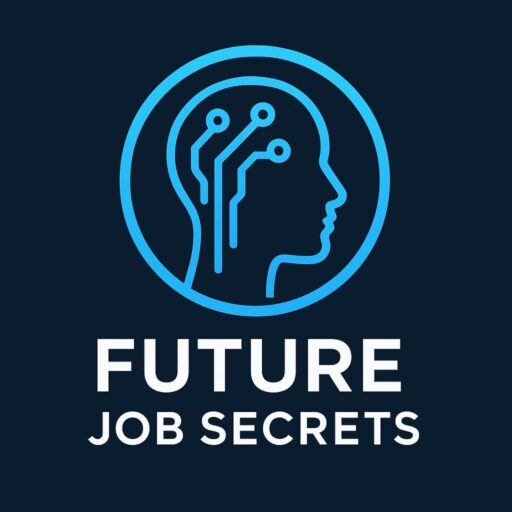In today’s rapidly changing world, learning new skills quickly is no longer optional—it’s a necessity for staying ahead and remaining valuable. Whether you’re aiming to boost your career, launch a side project, or explore a personal passion, mastering a skill within 30 days might seem challenging—but with the right approach and mindset, it’s entirely achievable. Let’s explore how you can make it happen.
Table of Contents
1. Set a Clear, Specific Goal
Before diving in, define exactly what “mastery” means to you. For example:
- Instead of saying “I want to learn photography,” say “I want to learn how to shoot professional-looking portraits in natural light.”
This clarity will help you stay focused and measure progress effectively.
2. Break It Down into Micro Skills
Every big skill is a collection of smaller ones. Divide your main skill into manageable sub-skills and tackle one at a time.
For example, if you’re learning graphic design:
- Week 1: Learn color theory
- Week 2: Master typography
- Week 3: Practice layout composition
- Week 4: Create real-world design projects
By breaking your learning journey into smaller goals, you’ll build momentum and confidence.
3. Use the 80/20 Rule (Pareto Principle)
Focus on the 20% of techniques or knowledge that deliver 80% of the results.
For instance, when learning a new language, concentrate on the most commonly used 500–1000 words.
This targeted approach accelerates progress and keeps you from getting overwhelmed.

4. Commit to Daily Practice
Consistency beats intensity. Even dedicating 45–60 minutes daily for 30 days can yield incredible results.
Create a schedule and stick to it—habit stacking helps. Link your new skill practice to an existing daily routine, such as right after breakfast or before bed.
5. Learn by Doing, Not Just Reading
Passive learning (reading or watching tutorials) has its limits. The fastest learners practice actively.
Apply what you learn every day—build, create, experiment, or teach someone else.
Active engagement deepens understanding and enhances long-term retention.
6. Use the Power of Feedback
Seek feedback early and often.
Join online communities, forums, or mentorship groups related to your skill. Constructive criticism helps you correct mistakes quickly and refine your abilities faster than learning in isolation.
7. Leverage Technology and AI Tools
Take advantage of digital resources like:
- Duolingo / Memrise for languages
- Skillshare / LinkedIn Learning for creative and professional skills
- ChatGPT / Notion AI for brainstorming, idea generation, and research
These tools can dramatically accelerate your learning curve when used strategically.
8. Track Your Progress and Reflect
Document your journey. Keep a learning journal, record short videos, or post updates online. Reflection helps reinforce what you’ve learned and motivates you to keep going.
9. Embrace the “Good Enough” Mindset
Perfectionism slows you down. Focus on improvement, not flawlessness. The goal is to gain functional competence in 30 days—not mastery on a professional level. Once the basics are solid, mastery will follow with continued practice.
10. Reward Yourself
Celebrate small wins! Every milestone—no matter how small—keeps motivation high. Treat yourself for staying consistent and hitting goals along the way.
Final Thoughts
Mastering a skill in 30 days isn’t about shortcuts—it’s about focus, structure, and smart learning. By breaking down goals, practicing daily, and using modern tools effectively, you can surprise yourself with how much you can achieve in just one month.
So, what will you master in the next 30 days?
Frequently Asked Questions (FAQs) – Master Any Skill in 30 Days
1. Is it really possible to master a skill in just 30 days?
Yes, it’s possible to achieve functional mastery—meaning you can confidently perform the skill at a competent level within 30 days. True expertise takes longer, but focused daily practice and smart learning methods can give you strong foundational mastery quickly.
2. How much time should I dedicate each day to learning?
Ideally, set aside 45–90 minutes per day. Consistency is key. Short, focused learning sessions are more effective than cramming long hours irregularly.
3. What’s the best way to stay consistent for 30 days?
Create a routine and set reminders. Pair your learning habit with something you already do daily, like after breakfast or before bedtime. Tracking your progress in a journal or app also boosts motivation.
4. What if I miss a day during the 30-day challenge?
Missing a day is fine—don’t stress. Simply continue where you left off. The goal is progress, not perfection. What matters is getting back on track and maintaining overall consistency.
5. Which skills are easiest to master in 30 days?
Some skills that can be learned effectively in 30 days include:
- Basic coding (HTML/CSS or Python)
- Graphic design fundamentals
- Public speaking techniques
- Speed reading
- Meditation and focus habits
- Social media management
- Writing and blogging basics
6. How can I make my learning faster and more effective?
Use the 80/20 rule—focus on the essential parts that bring the biggest results. Practice daily, apply what you learn immediately, and use AI tools or online platforms to speed up the process.
7. Should I focus on one skill or multiple at once?
For best results, focus on one skill at a time. Splitting your attention between multiple skills can dilute your progress and slow down mastery.
8. What resources or platforms can help me learn faster?
Try online platforms such as:
- LinkedIn Learning – for professional growth
- Skillshare / Udemy – for creative and practical skills
- Coursera – for academic and technical learning
9. How do I measure my progress within 30 days?
Set weekly milestones. For example:
- Week 1: Learn basic concepts
- Week 2: Apply knowledge in small projects
- Week 3: Test and get feedback
- Week 4: Create a final project or demonstrate your skill
10. Can I continue improving after 30 days?
Absolutely! The 30-day plan helps you build strong foundations. Continuing beyond that turns your skill from functional to expert level. The key is ongoing practice and curiosity.



